| Share |  |
 | |||
Stress and Your Health - The Adrenal - Cortisol Connection
Stress. No one can escape experiencing it or the toll it often takes on our health. Regardless of the origin or type of stress, the body responds in the same manner. Special hormones are released from two small glands that sit on top of each kidney (the adrenal glands) in order to prepare the body to cope with 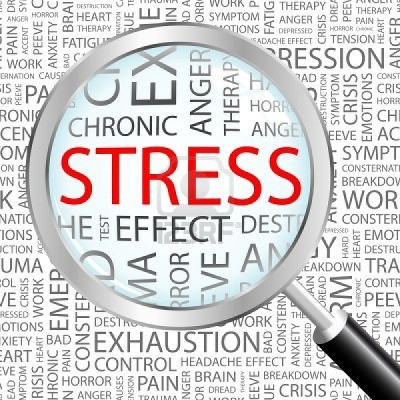 stress by making extra energy available to either “fight” the stressor or “flee” from it.
stress by making extra energy available to either “fight” the stressor or “flee” from it.
The problem is that our typical modern-day stressors do not generally require the same degree of extra physical energy the body needs to run from danger, accomplish a superhuman feat or endure long periods of physical challenge or deprivation as was more common with the types of stress people faced in times past. But the fact is that the stressors we deal with on a regular basis today – hectic schedules, worry over unpaid bills, long hours, work or school deadlines, vehicles breaking down, or just being stuck in traffic when running late – all evoke the identical “fight-or-flight” stress response that the body would experience if it were chased by a wild animal.
Add to those kinds of everyday stressors major life traumas (severe illness or injury, death of a loved one, broken relationship, etc.), various types of mental pressures and emotional struggles, and even the inner turmoil the body undergoes when negative emotions such as worry, fear, and anger are internalized  (keep in mind that the body cannot tell the difference between a real stress or one that is perceived or imagined). Top all that off with the stress produced when the body experiences chronic infections, is pushed too hard, gets too little sleep, goes on calorie restrictive diets, eats food it does not tolerate well, or consumes too much caffeine, sugar, bad fats and food that is processed and chemical-laden, and it is easy to see how cumulative effects from stress add up to negatively impact health.
(keep in mind that the body cannot tell the difference between a real stress or one that is perceived or imagined). Top all that off with the stress produced when the body experiences chronic infections, is pushed too hard, gets too little sleep, goes on calorie restrictive diets, eats food it does not tolerate well, or consumes too much caffeine, sugar, bad fats and food that is processed and chemical-laden, and it is easy to see how cumulative effects from stress add up to negatively impact health.
When Do We Get to Rest and Recover?
Even though our bodies are geared to handle high-level stressors, the amount of ongoing stress people commonly experience today does not allow for a period of rest and recovery that was meant to follow a stress response. Our bodies were wired to respond to stress rapidly in a scenario where stress hormones do their job and then dissipate, returning to normal pre-stress levels in a short time.
But the types of stress people carry in today’s world generally do not provide an outlet that physically uses up all the extra energy mobilized by stress hormones in the body. Instead of quickly returning to normal levels, they remain elevated and produce damaging effects to the body over time. And since today’s kinds of stresses tend to either be ongoing or occur wave after wave for extended periods of time, the body can easily stay in the stress response mode and never get to fully rest and recover. On a scale of one to ten, level five stressors that continue with no time for adequate rest and recovery are actually much harder on the body than more infrequent level ten stressors.
Understanding the Stress Response
In order to know how to counteract the harmful effects of stress, it is helpful to first understand what transpires within the body during a stress response and why the body responds as it does. In the initial “alarm” phase of the stress response, a hormone released by the pituitary gland (ACTH) triggers the 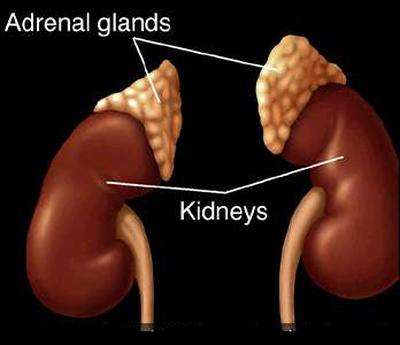 adrenal glands to release stress hormones (primarily adrenaline, noradrenalin and cortisol) to mobilize the body’s resources for immediate physical activity. Adrenaline dilates the pupils, heightens mental alertness, and increases the rate of respiration (for greater oxygen intake) as well as ramps up heart rate, blood pressure and blood flow to the muscles (especially large muscles that enable the body to run) to allow the body to aggressively respond in an instant.
adrenal glands to release stress hormones (primarily adrenaline, noradrenalin and cortisol) to mobilize the body’s resources for immediate physical activity. Adrenaline dilates the pupils, heightens mental alertness, and increases the rate of respiration (for greater oxygen intake) as well as ramps up heart rate, blood pressure and blood flow to the muscles (especially large muscles that enable the body to run) to allow the body to aggressively respond in an instant.
Meanwhile, cortisol levels rise to generate readily available energy for greater physical exertion to “fight” or “flee” the stressor. Cortisol facilitates the breakdown of glycogen (stored form of glucose) in the liver, releases fatty acids from fat cells and converts amino acids from muscle tissue into additional usable protein that can be converted to glucose if needed. The greater the stress, the more the adrenal glands must work to produce cortisol since stress uses up the supply that tissues and organs demand.
Ideally, the stress is quickly resolved and a period of rest and recovery follows in which the parasympathetic nervous system balances and relaxes the sympathetic nervous system that was stimulated by adrenaline. In this temporary recovery phase that usually lasts 24-48 hours, the hormones involved in the stress response become resistant to further stimulation as they recover from the previous overstimulation that took place in the “alarm” phase.
However, if stress is ongoing or occurs repeatedly and this period of rest and recovery does not take place as it should, the “resistance” phase begins in which the body must continue to fight the stressor 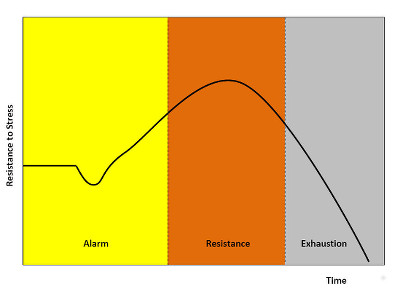 long after the initial effects of the “fight-or-flight” response have worn off. Levels of cortisol, the dominant hormone in play during this phase, remain elevated in the blood to continue to ensure that ample amounts of glucose are available for energy to sustain the body when liver and muscle stores are depleted.
long after the initial effects of the “fight-or-flight” response have worn off. Levels of cortisol, the dominant hormone in play during this phase, remain elevated in the blood to continue to ensure that ample amounts of glucose are available for energy to sustain the body when liver and muscle stores are depleted.
People can live in the resistance phase of stress where cortisol levels rarely subside to normal levels for many years. But if stress levels remain intense or if the body undergoes new stresses or trauma of even greater magnitude, the already fatigued adrenal glands become overtaxed to the point where they can no longer produce sufficient cortisol to supply the cells of the body with the energy they need to function.
In this final phase of “exhaustion,” cortisol is depleted, along with another hormone produced in the adrenal glands (aldosterone) that controls the ratio of sodium and potassium (as well as fluid balance) in the body. With significantly reduced levels of these two important hormones, the body suffers weakness and extreme fatigue from low blood sugar and electrolyte imbalance (specifically loss of sodium and retention of potassium). Adrenal hormones go from being excessively high in the “alarm” phase of the stress response to excessively low in the “exhaustion” phase to where a person may feel chronically fatigued and unable to recover their energy no matter how much they rest.
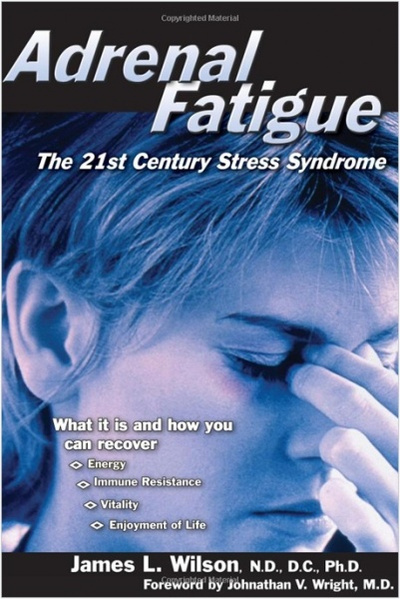 Adrenal Fatigue – our Modern Stress Syndrome
Adrenal Fatigue – our Modern Stress Syndrome
Adrenal fatigue or exhaustion is one of the primary causes of fatigue and lower than normal energy levels many people experience today. In spite of the fact that one of the main functions of the adrenal glands is to produce hormones that enable the body to cope with stress, their ability to maintain high cortisol levels over prolonged periods of time when faced with persistent stress-producing factors is not without limit. Just like a horse may no longer be able to run when he is repeatedly raced and whipped when tired out, or a car battery cannot continue to be jumpstarted when it is repeatedly drained from lights left on night after night, prolonged levels of stress can overtax and weaken the ability of the adrenal glands to keep rescuing the body from its effects. Extra cortisol was meant to be a back-up system – not something to supply the body with energy on a fulltime basis.
Living fast paced, high stress lifestyles, combined with eating poorly and regularly using stimulants like caffeine keeps adrenal glands releasing stress hormones on a regular basis. When cortisol is constantly overproduced, adrenal reserves become depleted and the person may suffer adrenal burn out or exhaustion.
In addition to becoming too exhausted to generate sufficient amounts of cortisol to give the body energy during stress, the adrenal glands may also be unable to produce enough cortisol and other steroid hormones (estrogen, progesterone, DHEA, testosterone, aldosterone, hydrocortisone, etc.) the body needs for regulating or otherwise affecting things like blood sugar levels, blood pressure, immune function, fluid and mineral balance, control of inflammatory reactions, reproductive hormone balance, sex drive, digestive function, muscle strength, and metabolism (weight regulation). The fact is that many of the health-related issues people experience are linked with or result from weakened adrenal function or depleted cortisol reserves.
Signs of Adrenal Gland Weakness or Fatigue
The vast majority of adults experience some degree of impaired adrenal function in their lifetime, although it is not a condition that is generally recognized or treated by mainstream doctors (unless it reaches a point  where the adrenal glands shut down almost completely as occurs in a condition known as Addison’s disease). Other than obtaining hormone testing that measures your cortisol levels at different times of the day in addition to some simple adrenal function tests you can do yourself at home (see information listed after the conclusion of this article), the best way to know if your adrenal glands might be struggling to do their job is observe how well you do or do not function, especially when you are under stress.
where the adrenal glands shut down almost completely as occurs in a condition known as Addison’s disease). Other than obtaining hormone testing that measures your cortisol levels at different times of the day in addition to some simple adrenal function tests you can do yourself at home (see information listed after the conclusion of this article), the best way to know if your adrenal glands might be struggling to do their job is observe how well you do or do not function, especially when you are under stress.
While the following list of symptoms by no means represents a complete or official list for determining adrenal health (and could be indicators of other conditions as well that share similar symptoms), I would encourage you to read through them to see if any apply to you. If you find that you identify with several or more of these symptoms, you may want to pay close attention to the guide after the conclusion of this article that addresses measures you can take to give your adrenal glands additional support and help manage your cortisol levels.
- Difficulty getting out of bed and feeling tired when you had sufficient sleep the night before. Feeling like a “zombie” until you have your morning caffeinated coffee or tea slump in energy and/or sleepiness in the mid-afternoon
- Tendency to get a second wind in the evening and then have trouble falling asleep, i.e. “tired but wired”
- Dependence on snacks, caffeine or something sweet to get you through the day energy-wise
- Feeling shaky, irritable, light-headed, anxious or extra fatigued when you do not eat regularly
- Feeling better for a brief period after a meal
- Weight gain, especially abdominal fat
- Increased forgetfulness and less mental clarity and ability to focus
- Less productivity and need for increased effort to accomplish everyday tasks
- Mild depression or lethargy with less enjoyment of life
- Reduced ability to cope when under stress or trouble bouncing back from stress or illness
- Feeling light-headed or dizzy when standing up quickly
- Dark circles under the eyes
- Frequent or nighttime urination
- Increased muscle weakness and stiffness
- Tendency to startle easily or have panic or anxiety attacks
- Cravings for salt or salty foods
- Increased bloating, moodiness, fatigue, cramping or chocolate cravings before menstrual period
- Worsening allergy, asthma or other respiratory symptoms, including recurring infections
Special Note: Do not conclude that you have adrenal fatigue based on symptoms alone without seeking the advice of a qualified health practitioner knowledgeable about adrenal disorders and able to make an appropriate evaluation in order to rule out other possible conditions.
How Too Much or Too Little Cortisol Affects the Body
In the right amounts, cortisol is beneficial and even vital to the health of the body in a number of ways. However, prolonged exposure from chronically high levels triggered by persistent stress can damage cells and tissues and wreck havoc on long-term health. Most of the symptoms and conditions people develop from too much stress and weakened adrenal glands stem from either chronically elevated cortisol levels or insufficient cortisol levels from adrenal exhaustion. Some of the more common areas of health affected by chronically elevated or low cortisol levels are:
Blood Sugar Imbalances
Constant production of cortisol keeps blood sugar elevated too long, which triggers overproduction of insulin from the pancreas. The higher the blood sugar levels, the greater the amounts of insulin produced and the more rapidly blood sugar levels drop – often to a point so low that overworked adrenal glands cannot generate sufficient surplus cortisol from reserves to raise them back up fast enough. The lower blood sugar levels fall, the more cortisol it takes to “rescue” the body from the crisis of inadequate amounts of glucose in the cells.
The brain is particularly hard hit by low blood sugar (known as hypoglycemia) because brain cells have no capacity to store extra blood sugar though the brain uses 60% of the glucose in the body. For this reason, many of the symptoms people experience with low blood sugar and fatigued adrenal glands stem from the brain not getting enough glucose to meet increased energy requirements during times of stress.
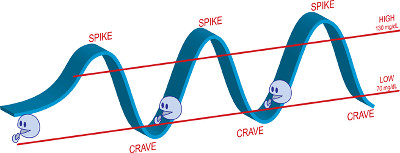 At this point, hunger and cravings for fast-acting carbs are so great that people tend to go for something that is either sweet or contains caffeine in order to give them a quick energy fix and relieve their low blood sugar symptoms. This shoots blood sugar levels up rapidly for about an hour but then they drop off again, often ending up lower than before. This blood sugar “roller coaster” effect ultimately leads to a state of insulin resistance where cells no longer respond to insulin’s efforts to usher in glucose. This is a very serious condition since insulin resistance plays an integral role in the development of conditions or diseases such as high blood pressure, high cholesterol and triglycerides, obesity, diabetes, certain cancers and heart disease. Plus the crisis of repeated drops in blood sugar itself is a stress to the body that triggers more and more cortisol release, further draining adrenal reserves.
At this point, hunger and cravings for fast-acting carbs are so great that people tend to go for something that is either sweet or contains caffeine in order to give them a quick energy fix and relieve their low blood sugar symptoms. This shoots blood sugar levels up rapidly for about an hour but then they drop off again, often ending up lower than before. This blood sugar “roller coaster” effect ultimately leads to a state of insulin resistance where cells no longer respond to insulin’s efforts to usher in glucose. This is a very serious condition since insulin resistance plays an integral role in the development of conditions or diseases such as high blood pressure, high cholesterol and triglycerides, obesity, diabetes, certain cancers and heart disease. Plus the crisis of repeated drops in blood sugar itself is a stress to the body that triggers more and more cortisol release, further draining adrenal reserves.
Weight Gain and “Belly Fat”
High levels of stress and resulting rises in cortisol directly correlate with the tendency to carry extra weight (especially around the middle) and to experience problems losing weight. During periods of chronic stress, rising levels of cortisol and insulin signal fat cells to either store as much fat as possible and/or hold on to fat stores in an effort to survive what it perceives as famine-like conditions (granted, in the “alarm” phase of the stress response, fatty acids are released from fat cells but that is only a short-lived reaction).
Not only do people with high cortisol levels often become insulin resistant since cortisol thwarts the effects of insulin to store glucose but they also tend to be less sensitive to leptin (the “feel full” hormone) and more susceptible to increased levels of grehlin (the hunger hormone) since cells do not receive sufficient amounts of glucose needed for energy. Studies with animals and humans injected with cortisol showed that cortisol increased appetite, cravings for sugar, and weight gain. Attempts to bolster lagging energy levels often lead severely stressed people to eat too much and, thereby, gain weight.
Fat stores from stress-induced appetites often end up as “belly” fat since visceral fat (fat that is deeply imbedded around organs in the abdominal region) is thought to contain four times more cortisol receptors  than regular subcutaneous fat. Scientists have discovered that this type of fat acts like an endocrine organ itself, reacting to the stress by spurring the deposit of more abdominal fat. Visceral fat is also known to increase inflammation and insulin resistance and is closely linked with metabolic syndrome, a collection of symptoms that can lead to obesity, diabetes, elevated cholesterol, high blood pressure and stroke.
than regular subcutaneous fat. Scientists have discovered that this type of fat acts like an endocrine organ itself, reacting to the stress by spurring the deposit of more abdominal fat. Visceral fat is also known to increase inflammation and insulin resistance and is closely linked with metabolic syndrome, a collection of symptoms that can lead to obesity, diabetes, elevated cholesterol, high blood pressure and stroke.
Theory has it that extra fat cells congregate in this area so they can be rapidly accessed for conversion into fatty acids in order to provide energy for the next stress response. Moreover, studies show that abdominal fat cells response strongly to a particular fat-storing enzyme that causes inactive cortisol to become reactivated into active cortisol within individual fat cells. Evidence indicates that greater amounts of these enzymes deep in fat cells contribute to higher tissue levels of cortisol and can lead to obesity.
High cortisol slows down metabolism since it breaks down lean muscle mass over time by converting the amino acids in it into additional glucose when the body is under stress. In addition, elevated cortisol reduces levels of other hormones that aid weight control such as DHEA, testosterone, growth hormone, IGF-1, and thyroid-stimulating hormones.
Brain and Mood Dysfunction
Acute, short-term stress can temporarily increase mental alertness and enhance cognitive skills and memory. However, overexposure to high cortisol can inhibit the brain from taking in sufficient glucose as well as affect the action of different neurotransmitters. This hinders the normal function of brain neurons and can even destroy them. Studies show a strong correlation between high levels of cortisol from stress and symptoms of memory loss and overall cognitive decline as well as brain shrinkage. Normally, the hippocampus (part of the brain involved in memory, learning and emotions) helps inhibit the release of stress hormones but the more brain cells are damaged, the less it is able to do so and the more loss of memory and mood stability occurs.  In addition, excess cortisol reduces levels of serotonin that help provide a sense of well-being and calm. Feelings of irritability, anger, and rage more easily occur when serotonin is low. Cortisol levels tend to be higher in people with depression who have experienced chronic stress, while levels of brain neurotransmitters such as dopamine, norepinephrine, and serotonin are lower. Although cortisol does not cause depression, elevated levels raise the risk by interfering with the overall activity of neurotransmitters in the brain.
In addition, excess cortisol reduces levels of serotonin that help provide a sense of well-being and calm. Feelings of irritability, anger, and rage more easily occur when serotonin is low. Cortisol levels tend to be higher in people with depression who have experienced chronic stress, while levels of brain neurotransmitters such as dopamine, norepinephrine, and serotonin are lower. Although cortisol does not cause depression, elevated levels raise the risk by interfering with the overall activity of neurotransmitters in the brain.
Immune System Suppression
In small quantities, cortisol speeds the repair of tissue when there is inflammation in the body (corticosteroid drugs are usually prescribed for their anti-inflammatory and immune-suppressing properties). Initially, high cortisol overactivates the immune system, which can lead to allergies, asthma, and a variety of autoimmune disease such as rheumatoid arthritis, lupus and fibromyalgia. If elevated levels continue over a prolonged period of time, the opposite effect can occur in which the immune defense system is suppressed as immune cells die off. This can increase susceptibility to colds and other illnesses or diseases such as cancer as well as increase tendencies to develop food allergies and gastrointestinal problems (over 60% of immune system cells are located within the intestinal tract).
Hormone Imbalance
When the adrenal glands are having to produce excess amounts of cortisol, levels of other hormones it is responsible for producing diminish, throwing off proper hormone balance. Since cortisol and progesterone compete for common receptors, high cortisol levels from prolonged stress make it hard for the adrenal glands to produce sufficient amounts of progesterone, meaning less is available for other uses in the body. Not only does this set the stage for estrogen dominance but it can also disrupt normal ovulation and menstrual cycles as well as increase symptoms of PMS and menopause. Rising cortisol lowers levels of testosterone, which can lead to accelerated loss of muscle mass, greater weight gain with more belly fat, decreased sex drive and performance, increased aging and risk of developing conditions that lead to disease such as high cholesterol and high blood pressure.
Gastrointestinal Disturbances
Stress inhibits the function of the gastrointestinal tract by activating the sympathetic nervous system and making it dominant. Since digestion is controlled by the parasympathetic nervous system, this suppresses its function, inhibiting digestive secretions, reducing digestive motility, moving blood away from the digestive organs to the muscles, as well as inhibiting elimination (a good reason not to eat a meal when you are in a stressed state - it will not digest well). Besides compromising digestion and absorption, the mucus lining of the gastrointestinal tract often becomes irritated and inflamed, which triggers the production of more cortisol. Irritable Bowel Syndrome, Crohn’s disease, colitis, low stomach acid and ulcers are commonly experienced conditions that result from compromised gut health related to stress.
Cardiovascular Disease
In the “alarm” phase of the stress response, cortisol and adrenaline work to increase the rate of heart muscle contraction and blood pressure in order to enhance the delivery of oxygenated blood While this primes the body to react to stress for the short term, over time it can lead to blood vessel damage and plaque buildup and increase the risk for heart attacks and strokes. This is why Type A personalities that are usually more stressed-out are at greater risk for heart disease than more relaxed personality types.
Respiratory Allergies
Cortisol plays an important role in mediating inflammatory reactions and the release of histamine that produce allergy symptoms people experience. The more histamine is released, the more cortisol it takes to control the inflammatory response and the harder the adrenals have to work to increase output. As they become fatigued, less cortisol is produced and the inflammatory effects from histamine on the respiratory tissues grow worse. People who struggle with food and environmental allergies commonly have weak adrenal glands that are unable to produce enough cortisol to help control these responses.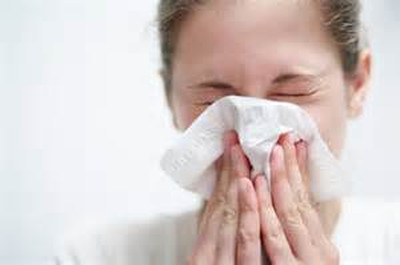
Other Health Issues
In addition to the health issues cited above, too much or too little cortisol from stress and/or fatigued adrenal glands can also promote low thyroid function (low cortisol causes the thyroid to work harder to compensate for low blood sugar and low energy), accelerate aging, interfere with restful sleep, contribute to conditions linked with accelerated loss of cartilage, bone and muscle, and a number of other health issues people suffer with today.
Why Your Adrenal Health is So Important
Whether the adrenal glands are stressed (excess cortisol production) or worn out (insufficient cortisol production), the role they play in overall health cannot be overestimated. That is because these important glands significantly affect the function of every tissue, organ and gland within your body.
Without the 50 different hormones the adrenal glands produce, you could not live. And when they get out of balance, the quality of your health may be seriously compromised. Besides keeping your body’s reactions to stress under check, how well your adrenal glands function influences how you think and feel, how your body responds to inflammation, your blood sugar balance, immune system function, fat distribution, proper cardiovascular and gastrointestinal function and a variety of other functions and processes too numerous to mention.
After mid-life (menopause for women), the adrenal glands take over and become the major source of the sex hormones that circulate throughout the body in both genders – hormones with physical,  emotional and psychological effects that influence everything from your sex drive to your tendency to gain weight. Your propensity to develop certain types of disease and how well your body holds up when subjected to chronic illness is greatly determined by the health of your adrenal glands.
emotional and psychological effects that influence everything from your sex drive to your tendency to gain weight. Your propensity to develop certain types of disease and how well your body holds up when subjected to chronic illness is greatly determined by the health of your adrenal glands.
Although eliminating stress may not be a realistic option for escaping the toll it takes on health, there is much you can do to enable your body to better handle stress and keep cortisol levels within their normal range. Whether you identify with the symptoms listed above and believe that your adrenal health is already compromised, or if you just want to understand more about preventative measures to keep them strong and healthy, I would encourage you to read and apply the recommendations in the guide below, “Steps to Strengthen and/or Restore Your Adrenal Health”.
STEPS TO STRENGTHEN AND/OR RESTORE YOUR ADRENAL HEALTH
While the condition of adrenal fatigue can be triggered by some trauma or severe life event, it more typically comes about as a result of the gradual, cumulative effect of multiple stressors. Preventing adrenal fatigue and supporting already tired adrenal glands therefore involves a multi-faceted approach that includes stress reduction/management, diet, exercise, lifestyle adjustments and appropriate supplementation. All of these can work together to lower your load of stress, balance cortisol levels and allow your adrenal glands to rebuild. Depending on how long and how severely depleted your adrenal glands are, it can take anywhere from six months to two years to restore them to normal function.
Reduce Your Stress Load
Easy to say, but the reality is that stress comes in so many varieties and forms that it is unrealistic to avoid it all together. However, while you may not be able to escape the stress that accompanies work pressures, marital or parenting struggles, death of a loved one, surgery, injury or other health crisis, you can identify areas that are controllable and make the appropriate priority and lifestyle adjustments that will lessen your load. The following practices may help you to accomplish this goal (for a more extensive and detailed discussion of several of these and other ways to reduce stress, I would refer you to Dr. James Wilson’s book Adrenal Fatigue – the 21st Century Stress Syndrome).
- Spend daily time in worship, prayer and meditating on God’s Word, releasing your cares and load of stress to Him and trusting Him to help you.
- Refrain from pushing your body too hard when it is tired and “burning the candle at both ends”.
- Cut out or reduce from your schedule any non-essential activities or responsibilities while
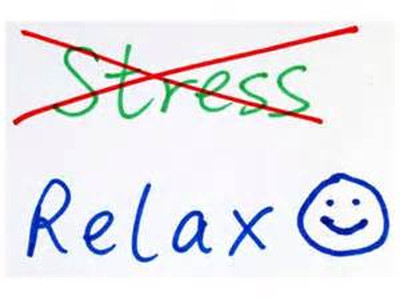 you focus on restoring your adrenal health.
you focus on restoring your adrenal health. - Avoid the “all work and no play” syndrome. Take a break to do something that is pleasurable to you every day even if it is just for a short time.
- Take walks or do whatever other type of activity that helps you relax and de-stress.
- Take hot baths with Epsom salts and/or essential oils with relaxing properties such as lavender.
- Takes herbs or drink herbal teas that contain herbs known to calm nerves such as chamomile, passion flower, and valerian.
- Practice deep breathing several times a day – rhythmic deep breathing helps your body shift from sympathetic to parasympathetic nervous system dominance where breathing, heart rate and oxygen consumption slow down; muscles relax and the brain generates the slower alpha waves. Deep abdominal breathing activates the vagus nerve, which helps to stimulate the relaxation response (the opposite of the stress response). During the relaxation response, the adrenal glands get a break from stimulation and body tissues become less sensitive to stress hormones. This means that your body has a chance to return to normal, get out of “high alert” mode and recuperate. To practice deep breathing, breathe slowly and deeply from your abdomen for several seconds (count of four is good). After holding your breath for the same amount of time, slowly and fully exhale (make sure that your stomach rises with each inhalation and that your chest is nearly motionless). Mentally focus on allowing every muscle in your body to relax.
- Take a short horizontal rest period during the day if you are able, especially when feeling lethargic or exceptionally tired.
Rest and Sleep
Since the adrenal glands build and repair during sleep, it is vital to take measures to get sufficient sleep. When it comes to strengthening weak adrenal glands, the more restful sleep you obtain, the better off you are. High cortisol alters normal sleep cycles, reducing amounts of restorative sleep. Low cortisol can interfere with sleep as well.
Often people with severe adrenal fatigue whose cortisol levels are low will awaken during the night, typically between 1 am and 4 am. This is generally due to blood sugar levels dropping and the inability of tired adrenals to readily produce enough cortisol to convert glycogen (glucose stored in the liver) to active blood sugar to raise levels back up again. Since blood sugar can only go so low without the brain going into a coma, low cortisol sparks a stress response that activates stimulatory hormones like adrenaline to rouse the adrenal glands to do their job so blood sugar does not drop to dangerous levels. The emergency surge of adrenal hormones kicking in is what awakens people. Follow these guidelines to improve your sleep and improve the health of your adrenal glands:
- Exercise daily to help make you tired – it may not make a noticeable difference right away but if you are consistent with it, regular exercise will improve how long and deep you sleep over time. Make sure, however, that you do not exercise in the evening as exercise does raise cortisol levels and you need a few hours for them to return to lower levels before you go to bed.
- Be in bed and asleep before the “second wind” hits around 11 pm.
- Take time to prepare for bedtime by turning off electronics and bright lighting a couple of hours before bedtime and doing something quiet and relaxing in order to wind down and de-stress.
- Sleep in a completely dark room.
- Eat a small snack at bedtime comprised of quality protein and good fat if you experience awakening from low blood sugar.
- Take an adrenal glandular formula supplement before bed if the above measures are not enough to help
Engage in Regular Exercise
Since stress hormones are released to prime your body for action, regular moderate exercise is the best way to lower cortisol levels quickly before they produce damaging effects on the body. A regular exercise program teaches your muscles to respond to cortisol more effectively so less is needed.  Besides modulating cortisol levels, this also helps you optimize metabolic control of blood sugar. In addition, exercise leads to endorphin production (“feel good” chemicals) in the brain, which can reduce many of the detrimental effects of stress.
Besides modulating cortisol levels, this also helps you optimize metabolic control of blood sugar. In addition, exercise leads to endorphin production (“feel good” chemicals) in the brain, which can reduce many of the detrimental effects of stress.
For those with more severe adrenal fatigue, it is important to start slowly in a program that makes the best use of limited energy and does not over-stimulate the sympathetic nervous system and trigger an adrenaline release. It is important to get the right intensity, amount and frequency of exercise and absolutely vital that you do not engage in overtraining or exercise that is overly strenuous. After the body begins to strengthen and builds up reserve, you can progress to increased forms of exercise that help rebuild and strengthen muscles.
Reduce Toxic Load
Chemicals found in most personal care products, cosmetics, perfume and air fresheners (any product with “fragrance” listed as an ingredient), cleaning supplies, lawn and garden products, pesticides and herbicides in our food supply, etc. contain “endocrine (referring to the body’s glandular system) disruptors” that enter the body and attach to hormone receptor sites. Once attached, they contribute to hormone imbalance by either blocking normal hormone function or mimicking our natural hormones, causing excess levels.
Since keeping hormone levels among all of the glands balanced is a delicate process, even low toxic exposure can throw off the normal function of the adrenal and other glands. Keep in mind that these types of toxins are fat-soluble, meaning they do not break down easily for elimination. Rather they accumulate in our tissues and fat cells and continually recirculate throughout the body.
Practice Proper Dietary Habits
How well your adrenal glands function depends a great deal on what you do or do not put in your body on a regular basis. By the time someone is in a state of adrenal fatigue, their supply of stored nutrients is extremely depleted and in need of replenishment since stress drains the body of nutrients (especially minerals which are vital to numerous enzyme reactions). The following dietary, lifestyle and supplement recommendations will help you to nourish and rebuild your adrenal glands and restore them to optimal function.
- Eat an abundance of whole, unprocessed, nutrient-dense foods – Lack of adequate proteins, essential fatty acids and abundant supply of carbohydrates rich in phytonutrients can worsen the symptoms of adrenal fatigue and contribute to nutritional deficiencies.
- Eat more frequent, smaller meals or nutrient-dense snacks at regular times of the day - going too long between meals taxes the adrenals – a mid-afternoon snack is especially important.

- Combine protein, fat and complex carbs at every meal and snack - each of these types of nutrients convert into glucose at different rates to provide a steady source of energy over a longer period of time.
- Eat a substantial breakfast that contains sufficient amounts of protein – eat within one hour after waking if possible (never cereal, fruits or breakfast items made from flour that quickly turn to sugar).
- Have at least five small (1/2 the size of your palm) servings of protein spread throughout the day - protein stimulates a mild rise in cortisol when levels may be dipping low and stimulates the release of glucagon, a hormone that inhibits the release of insulin and helps with the release of stored glucose (glycogen) from the liver. The release of glycogen raises blood sugar levels back up when they are too low.
- Make your carb choices from non-starchy vegetables as often as possible - eat an abundance of deep colored carbs and green vegetables, especially dark, leafy greens – lightly steam vegetables and consume the juice as it will contain minerals from the vegetables.
- Do not eat fruit or refined carbs past mid-afternoon.
- Do not eat dinner late at night – eating within three hours of your bedtime interferes with sound sleep plus digestive processes slow down in the evening.
- Eat plenty of good fats – fats are required for hormone production in the body and essential fatty acids are anti-inflammatory and improve blood sugar metabolism. Good fats are also essential for nerves to function well.
- Keep yourself well-hydrated – Cortisol levels rise in response to the stress of even the slightest degree of dehydration. Also, drinking plenty of water when under stress can help to calm your nerves since dehydration can increase anxiety levels (make sure that you do not drink tap water that is full of chlorine, fluorine and other chemicals).
- Get adequate amounts of healthy unrefined sea salt - Quality natural sa
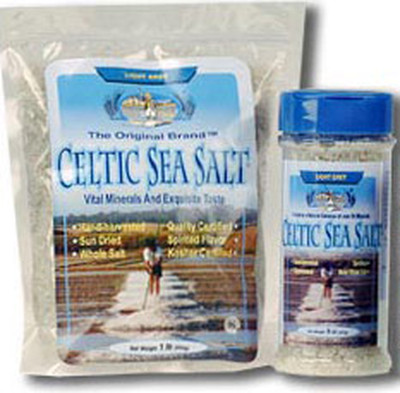 lt (preferably Celtic or Redmond) is vital for providing a wide variety of trace minerals the adrenal glands need to function optimally whereas refined (table) salt depletes minerals, inhibiting the body from overcoming adrenal exhaustion. In addition to salting your food, it is recommended that people with severe adrenal fatigue who crave salt should add 1/8 to ¼ teaspoon of salt to a glass of water in the morning and evening, and throughout the day as needed. Dr. James Wilson recommends starting your day with a glass of water that contains ½ to 1 teaspoon of quality sea salt.
lt (preferably Celtic or Redmond) is vital for providing a wide variety of trace minerals the adrenal glands need to function optimally whereas refined (table) salt depletes minerals, inhibiting the body from overcoming adrenal exhaustion. In addition to salting your food, it is recommended that people with severe adrenal fatigue who crave salt should add 1/8 to ¼ teaspoon of salt to a glass of water in the morning and evening, and throughout the day as needed. Dr. James Wilson recommends starting your day with a glass of water that contains ½ to 1 teaspoon of quality sea salt. - Eat a small snack at 2:00 p.m. along with 1,000 mg. of vitamin C and 200 mg. of magnesium and pantothenic acid if you tend to experience an afternoon slump.
Avoid the Following:
The following foods and beverages should be avoided as much as possible because they are either stimulants, raise blood sugar, or stress the adrenal glands in some other way.
- Sugar – works as a stimulant that stresses the body by converting to glucose too quickly and spiking blood sugar levels (learn to read labels and be aware of the many other names for sugar used such as dextrose, sucrose, maltose, corn sweetener, corn syrup, etc.)
- Other white or refined carbohydrates (flour, rice, pasta, potatoes and anything made with them as they are too quickly absorbed as sugar)
- Caffeine - caffeine is a central nervous system stimulant that temporality drives the adrenal glands and keeps the body’s emergency stress system continually switched to the “on” position. While this initially provides a “lift” in energy, its further depletes adrenal reserves by raising blood sugar levels and contributing to the roller coaster blood sugar effect. The more the adrenal glands are kicked, the more fatigued and difficult to stimulate they become, which means a downside of reduced energy over time far greater than any temporary spurt of “false” energy. If you are addicted to coffee, it is recommended that you cut back gradually by halving your dose every day until you are down to one half cup and then stop. Take at least 1,000 mg of buffered vitamin C a day during this time to support liver detoxification and help with detox symptoms. If you do have an occasional cup of coffee, it is recommended that you only use a high-quality organic coffee and that you use cream as the oils in it can to help mitigate the negative effects of the coffee. In addition, take extra magnesium, calcium, B complex and anti-oxidants to help detoxify the liver pathway coffee impairs.

- Herbal stimulants – guarana, ephedra, coleus, yohimbe and other herbal stimulants increase the output of adrenaline and should be avoided for the same reasons as coffee.
- Chocolate – in addition to caffeine, chocolate contains theobromine that further interferes with adrenal function. If you crave chocolate, your body is probably deficient in magnesium.
- Avoid fruit juice – morning orange juice is especially detrimental for anyone with adrenal fatigue due to how quickly causes blood sugar levels to rise and fall.
- Foods exceptionally high in potassium (bananas, all melons, dried figs, raisins, dates, oranges, grapefruit, etc.)
- Alcohol – alcohol is in an extremely refined form (more refined than white sugar) that quickly absorbs into cells, forcing them to generate energy at a rapid rate and promoting the blood sugar roller coaster effect. Alcohol also robs the body of nutrients the liver uses up to break it down into sugar. Cravings for alcohol are often driven by the body desperately needing quick energy due to weakened adrenals. Though it may temporarily relieve the symptoms of adrenal fatigue, it worsens the condition and produces more cravings after it wears off. In addition, it leaves the body in a dehydrated state that produces even more stress.
- Food allergens or any foods you do not tolerate well or strongly crave – continuing to eat food that you react to or crave (we tend to crave foods that we do not digest well) elicits an inflammatory response that requires extra amounts of cortisol to control, making the adrenal glands work harder to produce it. Therefore, eliminating foods to which you are allergic or sensitive to decreases the demand made on struggling adrenal glands.
Take Targeted Vitamin and Mineral Supplements
Vitamin C – The adrenal glands have the highest demand for vitamin C of any gland in the body. Stress increases the need for vitamin C since it is required for cortisol production. If you do not make sufficient amounts of vitamin C available to your body throughout the day, the adrenal glands cannot make sufficient amounts of the hormones your body needs to properly respond to stress, which means that you may feel worse and experience a slower recovery. This important anti-oxidant vitamin is also needed by many other tissues, organs and systems of the body that are affected by stress, especially the immune system that extra vitamin C intake helps to stimulate.
According to Dr. James Wilson, author of Adrenal Fatigue – the 21 Century Syndrome, people under stress or who are experiencing adrenal fatigue or exhaustion should take a vitamin C supplement several times per day. This is especially necessary since vitamin C is a water-soluble vitamin that is easily lost through urinary excretion. He also points out that amounts of vitamin C available in today’s food supply are just not sufficient to support the adrenals during stress and the recovery phase.
Dr. Wilson recommends that people take a vitamin C supplement with a 1:2 ratio of bioflavonoids to ascorbic acid in order for the ascorbic acid to be fully metabolized and utilized by the body (bioflavonoids basically double the effectiveness of ascorbic acid and allow its action to be more complete). The Vitamin C supplement I use and recommend contains this exact ratio. In order to determine how much Vitamin C your body may need, Dr. Wilson recommends taking one vitamin C supplement that contains 500 mg. of ascorbic acid and 250 mg. of bioflavonoids, and then increasing by one every hour until bowel movements become somewhat loose and runny.  Once this level is achieved, decrease that amount by 500 mg. ascorbic acid and 250 mg. bioflavonoids – that will be the amount you should take. People with extreme fatigue whose adrenal health is severely compromised will require more vitamin C. You can periodically retest as you may need less after your adrenal health is strengthened.
Once this level is achieved, decrease that amount by 500 mg. ascorbic acid and 250 mg. bioflavonoids – that will be the amount you should take. People with extreme fatigue whose adrenal health is severely compromised will require more vitamin C. You can periodically retest as you may need less after your adrenal health is strengthened.
B-Complex Vitamins – All of the B vitamins are extremely important to support the adrenal glands and the nervous system, especially during stress, in addition to playing a key role in the metabolism of protein and carbohydrates. Besides taking a high-potency B-complex to cover all the bases, higher amount of certain B vitamins (B1, B2, B3, B5 and B6) are particularly needed for people with compromised adrenal health or whose nerves are frayed due to stress.
Pantothenic acid (vitamin B5) is widely used as an adrenal support supplement as the body needs this B vitamin to make adrenal hormones and to produce energy. This B vitamin is found in higher quantities in the adrenal glands, probably because it takes a lot of energy to produce adrenal hormones. Pantothenic acid is also thought to buffer the rise of cortisol during stress. The combination of pantothenic acid with magnesium, vitamin E and vitamin C helps strengthen fatigued adrenals, without over stimulating them. 500 mg two to three times a day is recommended initially – that amount can be reduced over time as adrenal health improves.
Vitamin E – Vitamin E is essential since the manufacture of adrenal hormones generates substances called free radicals that can greatly damage adrenal cells if not controlled. Although vitamin E is not directly required for the production of adrenal hormones, it is indirectly involved in at least six different enzymatic reactions that must occur in the process.
Excess amounts of free radicals slow down enzymatic reactions as well as damage adrenal cell structures. Vitamin E works to absorb and neutralize free radical molecules that are damaging, whether inside the adrenal glands or elsewhere in the body. Vitamin E’s activity insides the cell is enhanced by Vitamin C as it regenerates its capacity to sequester free radicals.
Sufficient amounts of vitamin E are necessary for adequate hormone production and to recover from adrenal fatigue or exhaustion. Dr. Wilson recommends taking a vitamin E supplement with mixed tocopherols in the amounts of 800 IU per day with meals for at least three months to see significant improvement in severely weakened adrenal glands.
Special Note: Make sure that any vitamin E you purchase does not have the letters “dl” before any of the types of tocopherol since that means it is synthetic and derived from petrochemical sources.
Magnesium – Magnesium acts like a spark plug for the adrenals as well the energy portion of every cell in your body. It is essential for the production of adrenal hormones and peak performance of the adrenal glands. In addition, magnesium helps to relax nerves and calms the body under stress. Magnesium is an important nutrient for adrenal recovery, especially since the need for it increases during periods of heightened stress.
It is recommended that more absorbable and bioavailable forms of magnesium be taken, such as magnesium citrate and magnesium malate. Dr. Wilson recommends 400 mg. a day and is of the opinion that it is better absorbed when taken at night before bed.
Trace Minerals - Though needed in small amounts, trace minerals are very important to overall health, and particularly helpful for calming nerves of people suffering with stress and adrenal fatigue. The main trace minerals that are particularly valuable for giving the body what it needs to cope with health issues associated with adrenal fatigue are zinc, manganese, selenium, molybdenum, chromium, copper, and iodine.
Use Herbs Known to Help the Body Cope with Stress
Adaptagens – Adaptagenic herbs are a class of herbs that help reduce the impact of stress on our bodies by lowering the adrenal output of adrenaline and cortisol.  These herbs work by acting on signals from the hypothalamus and pituitary gland which trigger adrenal stress hormone production. By inhibiting the mechanism that stimulates more cortisol release, adaptagenic herbs help to break the vicious cycle of fight-or-flight patterns the body often gets stuck in due to chronic stress. Common adaptagenic herbs used to help with stress and adrenal fatigue are eleuthero, schizandra, rhodiola, ginseng, astragalus, ashwaganda, suma, maca, and gotu kola.
These herbs work by acting on signals from the hypothalamus and pituitary gland which trigger adrenal stress hormone production. By inhibiting the mechanism that stimulates more cortisol release, adaptagenic herbs help to break the vicious cycle of fight-or-flight patterns the body often gets stuck in due to chronic stress. Common adaptagenic herbs used to help with stress and adrenal fatigue are eleuthero, schizandra, rhodiola, ginseng, astragalus, ashwaganda, suma, maca, and gotu kola.
Formulas of these herbs in the right combinations seem to work the best. Adaptamax is a formula I like to recommend that contains Korean ginseng, rhodiola, eleuthero, gynostemma, ashwaganda, suma, astragalus, and schizandra in addition to other herbs and nutrients such as kelp, alfalfa, turmeric, rosemary, reishi mushroom, broccoli, carrot, red beet, tomato, cabbage and assorted bioflavonoids. Suma Combination is another combination of adaptagenic herbs that aid the body’s ability to cope with stress that includes astragalus, ginkgo, gotu kola, eleuthero and suma. Some of the herbs in this formula also enhance circulation to the brain and stimulate the immune response.
Licorice Root - Licorice root is the best known “anti-stress” herb and is helpful for improving stamina and endurance as well as increasing the availability of cortisol by slowing down the breakdown of adrenal hormones. Since unstable blood sugar levels and resulting hypoglycemia (low blood sugar) often occur with high stress and cortisol levels, licorice root is especially helpful for stabilizing blood sugar levels and also reducing cravings for sugar and refined carbohydrates. One important caution with licorice root - it should not be taken by people with high blood pressure in high amounts for long periods of time as it can worsen the condition by increasing the production of aldosterone, which then increases sodium retention. Deglycyrrhized licorice (DGL) is made by removing the glycyrrhizin component of licorice root. Although that process eliminates the concern for increased blood pressure, it also reduces its effectiveness for strengthening the adrenal glands.
Nervines – Nervine herbs help a person unwind and balance the nervous system when it is stressed. They work to calm down the sympathetic nervous system function by activating parasympathetic function. Chamomile, passion flower, hops and valerian are examples of nervine herbs. A very good formula for helping the body cope with stress is Stress-J, which contains several of these herbal nervines.
Adrenal Glandular Extracts - contain the raw materials from animal adrenal glands to supply what the adrenal glands need to heal and recover without the side effects of synthetic cortisol. Extracts of glandular tissue are able to provide a gland or organ with the exact nutrients needed in the most optimal synergistic balance (vitamins, minerals, fat-soluble nutrients, peptides, enzymes, hormonal precursors and other metabolic co-factors). 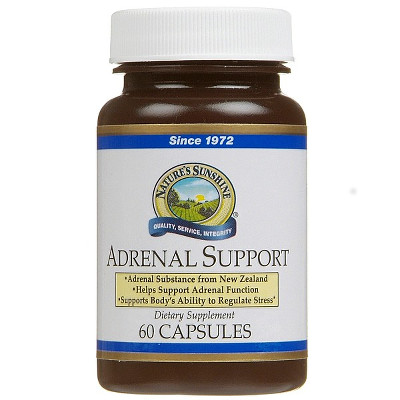 Great care should be taken when obtaining supplements with raw glandular extracts to ensure that the product is from a reputable company that guarantees its purity and potency. Animal glandulars should be free of pesticides, hormones, antibiotics, BSE, etc. and only derived from animals that are raised by organic standards and graze free-range on pristine grasslands such as in New Zealand or Australia.
Great care should be taken when obtaining supplements with raw glandular extracts to ensure that the product is from a reputable company that guarantees its purity and potency. Animal glandulars should be free of pesticides, hormones, antibiotics, BSE, etc. and only derived from animals that are raised by organic standards and graze free-range on pristine grasslands such as in New Zealand or Australia.
Adrenal Support is a unique formula that provides an adrenal glandular substance from New Zealand in addition to a synergistic blend of vitamins, minerals, enzymes and adaptagenic herbs that work together to strengthen, renew and enhance proper adrenal function and metabolism.
Hormone Replacement – Temporary replacement of hormones such as DHEA and hydrocortisone can be effective in certain types of cases of severe adrenal fatigue but should be used only when hormone levels are tested and the person is working with a trained health practitioner.
INFORMATION ON SALIVA CORTISOL TESTING
Since both high and low cortisol levels are associated with multiple symptoms, cortisol testing often provides the best information to determine the most optimal course of action for treating adrenal dysfunction. In addition, cortisol testing can provide an objective measurement of response to treatment.
Saliva testing is preferred over serum testing because it represents the free, bioavailable hormone levels available in the tissues rather than in the bloodstream plus it is reliable, non-invasive and convenient to do at home.
A four-point salivary adrenal function test measures samples over the course of a day in order to show the pattern of your circadian rhythm and how your cortisol levels rise and fall throughout the day.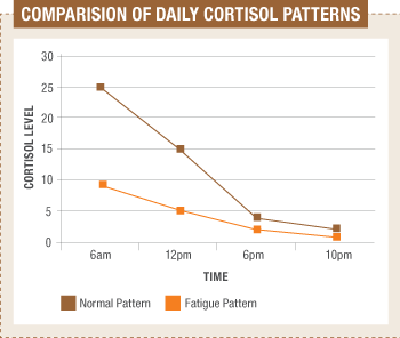 Saliva is collected at approximately four-hour intervals: first thing in the morning upon waking, then at noon, late afternoon, and again at night before going to bed. A normal circadian rhythm of cortisol is characterized by a steep increase in the morning and increased peaks after meals, followed by a gradual tapering off until about midnight where the levels are lowest. Results that show low morning cortisol can point directly adrenal fatigue.
Saliva is collected at approximately four-hour intervals: first thing in the morning upon waking, then at noon, late afternoon, and again at night before going to bed. A normal circadian rhythm of cortisol is characterized by a steep increase in the morning and increased peaks after meals, followed by a gradual tapering off until about midnight where the levels are lowest. Results that show low morning cortisol can point directly adrenal fatigue.
You can get levels measured of just your morning cortisol levels, a two-point cortisol am and pm test or the four-point cortisol that is most revealing in determining what may be taking place with your circadian rhythm and adrenal function. ZRT Lab is a reputable lab that specializes in saliva hormone testing.
INFORMATION ON HOME TESTS TO SCREEN FOR ADRENAL DYSFUNCTION
There are several outward physical signs that a person may be experiencing adrenal fatigue such as dark circles under the eyes, a quivering tongue or pulsing pupils. In addition to making these outward observations, you may also want to perform the following tests that can easily be done at home. Please keep in mind that none of these tests alone mean that the adrenal glands are fatigued or exhausted. However, they can be good indicators if positive results are accompanied by other signs and symptoms of adrenal fatigue.
Postural Hypotension Test
Equipment Required: Home Blood Pressure Monitor
Since one of the main functions of the adrenal glands is to maintain a normal blood pressure, adrenal exhaustion can affect the body’s ability to normalize disrupted blood pressure levels. It is normal for blood pressure to drop when a person quickly moves from a prone to a standing position.
A quick drop in pressure activates the sympathetic nervous system to release adrenal hormones to correct the imbalance.
Postural hypotension is when the drop in blood pressure is not quickly raised back to normal levels because the adrenal hormones involved in maintaining normal levels (aldosterone and cortisol) are too low to respond adequately to make the correction.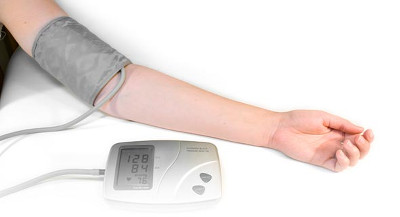
Consequently, a person with adrenal fatigue will sometimes experience a feeling of dizziness or lightheadedness when they quickly stand up. A significant decline in systolic blood pressure (the first number that is higher) can be a sign of severely weakened adrenal glands or adrenal fatigue. To do this test, first lie down and rest for 5-10 minutes. Take a blood pressure reading while still horizontal. Then, stand up quickly and immediately take another reading.
In a person with good adrenal health, the systolic blood pressure number should rise approximately 10 points. If it stays the same, the adrenal glands may be starting to fatigue.
However, if it drops, particularly by 10 points or more, low adrenal function (hypoadrenia) may be indicated. Generally speaking, the bigger the drop, the greater the degree of adrenal insufficiency.
It should also be mentioned that low blood pressure in general is another indicator of exhausted adrenals, especially if it is accompanied by other symptoms of adrenal gland fatigue.
Iris Contraction Test
Equipment required: Small flashlight, mirror, a watch (with a second hand), and a dark room.
In a dark bathroom or closet, wait a minute for your eyes to adjust to the dark to allow pupils to dilate (fully open). Then, holding the flashlight at the side of your head, shine it across one eye (not directly into the eye).
Watch the reaction of your pupils for at least 30 seconds.
The light should cause your iris to contract, making your pupils smaller. With good adrenal function, pupils will remain contracted but if your adrenal glands are severely fatigued, your iris will be weak and not able to hold the contraction.
It may either waver between being contracted and relaxed, or will contract initially, but then start to widen and open up after 10-30 seconds and be unable to contract again for about 30-45 seconds. To be certain of results, keep the light shining for 1-2 minutes.
The more readily your pupils pulse or lose the ability to maintain contraction, the greater the degree of adrenal insufficiency. If you can, time how long the dilation lasts, and record it along with the date. Retesting monthly while working to rebuild your adrenal health can serve as an indicator of recovery.
Sources:
Adrenal Fatigue – the 21st Century Stress Syndrome by James L. Wilson, N.D., D.C., PhD
The Cortisol Connection by Shawn Talbott, PhD, FACSM
http://www.drlam.com/articles/adrenal_fatigue.asp
Copyright © 2008-2015 Lucinda Bedogne, CNHP, CNC
Post Your Comment...
|
|
||||||||||||


